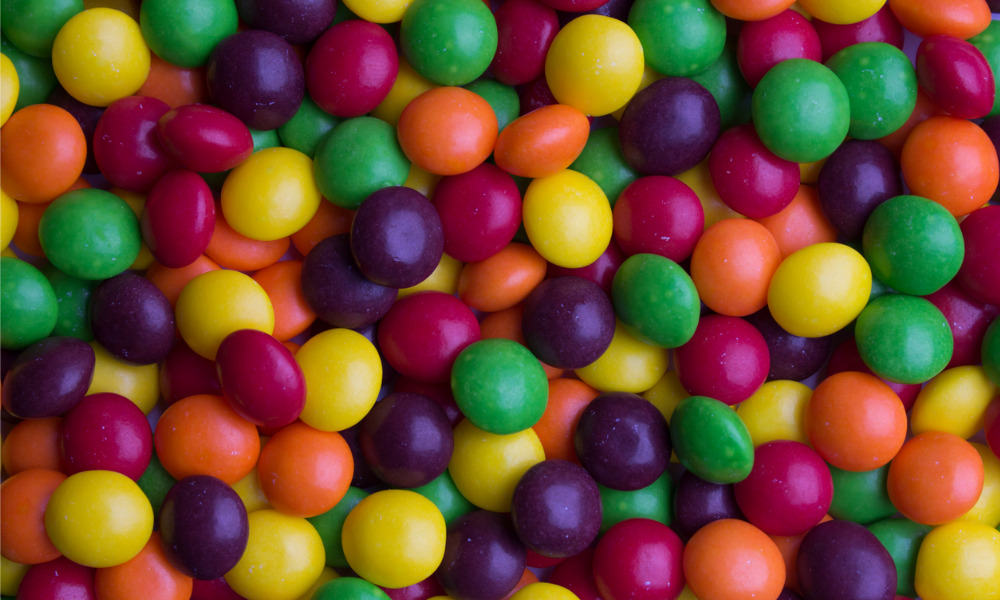Evidence sufficient to show online companies sold candy similar to 'SKITTLES': Federal Court

Email correspondence denying the sale of THC-infused products similar to a well-known candy was sufficient to establish receipt of the statement of claim of trademark infringement against cannabis companies operating online.
In Mars Canada Inc. v. John Doe #1 (King Tuts Cannabis), 2022 FC 1193, Mars Canada Inc. sued multiple John Does for trademark infringement and damages. These John Does were operating as King Tuts Cannabis, West Coast Supply, Shrooms Online, Flash Buds, and Sure Buds and allegedly marketed and sold THC-infused confectionary products associated with registered SKITTLES trademarks and in lookalike SKITTLES candy packaging online.
Mars brought a motion for default judgment against the five John Does. Under Rule 210 of the Rules, a motion for default judgment raises two issues: whether the defendant is in default, and whether there is evidence to support the plaintiff’s claim and relief requested.
Mars acknowledged that there was insufficient evidence to support default judgment against King Tuts Cannabis, but the Federal Court partially granted the motion for default judgment.
First, for a defendant to be in default, they must have received notice and the time for service and filing of a defence has expired, said the court. In this case, Mars obtained permission for substituted service by email, since the defendants operated online and Mars was unable to personally serve the statement of claim.
The court rejected Mars’ argument that the defendants’ withdrawal of the products after serving the statement meant they all received it. The evidence indicated that West Coast and Shrooms Online were not advertising the infringing product when the statement was served, said the court.
However, there was evidence that West Coast, Shrooms Online, and Flash Buds received the statement, where these three defendants asserted through email that they did not sell the infringing product, said the court.
As for Sure Buds, however, the court found no evidence of prior communication and thus concluded that there was insufficient evidence to establish default.
Second, under the Trademark Act, a trademark is infringed by the sale, distribution, or advertisement of goods and services associated with a mark confusingly similar to another mark where use is likely to infer that the goods are associated with the owner of the registered trademark.
The court found that Mars had sufficient evidence of infringement. West Coast, Shrooms Online, and Flash Buds’ assertion that they did not sell the infringing products occurred after screenshots of their websites were taken and did not contradict the evidence that both defendants previously marketed them for sale, said the court, adding that Mars never authorized these activities.
The court allowed the motion against West Coast, Shrooms Online, and Flash Buds, while dismissing it against King Tuts Cannabis and Sure Buds due to insufficient evidence.










